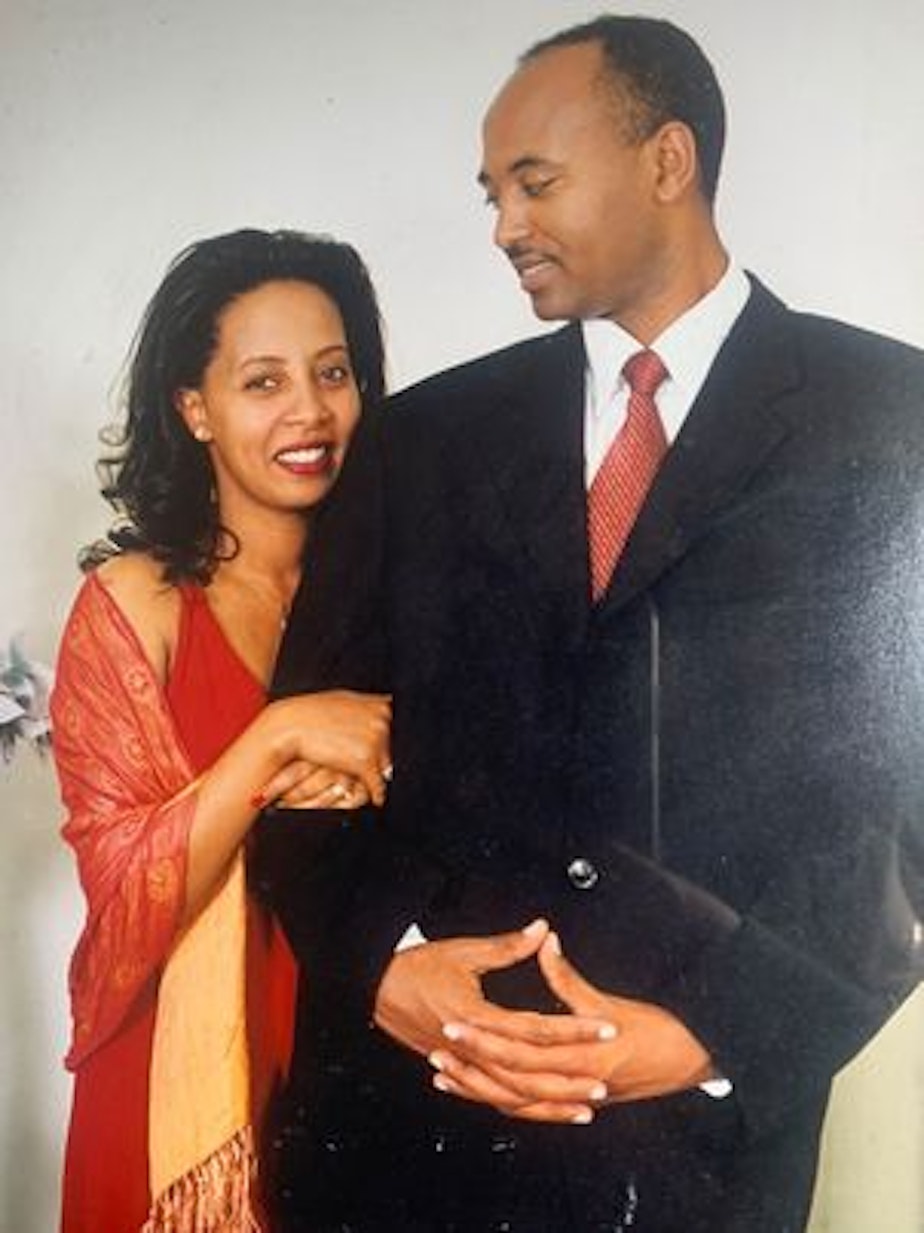My Ethiopian mother's courageous and isolating experience of immigration

Many parents make sacrifices for their children. For immigrants, that may mean moving to the United States to fulfill the "American Dream." But for one mom, that dream didn't come true. RadioActive’s Redeat Debebe has this story about her family.
[RadioActive Youth Media is KUOW’s radio journalism and audio storytelling program for young people. This story was entirely youth-produced, from the writing to the audio editing.]
F
or my mom, the "American Dream" was kind of an American nightmare.
Contrary to popular belief, some U.S. immigrants, like my mom, lived comfortably in their home countries.
Sponsored
"We had many maids," my mom, Axumawit Gebregorgis, said. "My siblings and I hyper-focused on our school work."
My mom was born in Ethiopia and lived in the capital, Addis Ababa. She is one of eight kids and had a tight-knit family.
Her family owned a jewelry business, and after graduating from college and traveling the world, she and her siblings took over. My mom was an international buyer and saleswoman for luxury brands such as Bulgari in Italy, and she traveled throughout Europe.
"I went abroad for vacation at least twice a year," my mom said. "I shopped for clothing exclusively in Europe, and to bring jewelry and items for the company as well as my family. I traveled to places like Italy, Switzerland, and Dubai constantly."
Sponsored
My mom met my dad when she was 26, and that’s when her life began to change.

After my parents got married, they started to build a family and had two children. My dad split time between the U.S. and Ethiopia. He traveled globally with my mom and proposed moving to America.
My mom wasn’t as excited as he was about the thought of the move. But she decided to prioritize her growing family above all else, even if that meant moving away from her country and losing her status, her job, and the lifestyle she loved, along with her best friends and parents.
"In Ethiopia, we make a point to be close," my mom said. "Everyone knows everyone’s phone numbers. I even memorized all my friends' and family’s license plate numbers for safety."
Sponsored
When she arrived in Seattle, my mom felt hurt by the notorious "Seattle freeze," a feeling of social isolation often expressed by newcomers to the city.
"In Ethiopia, your neighbors are instantly much warmer," she said. "They invite you to dinner and gatherings with their families, no question."
My mom grew up multilingual, speaking languages from her travels such as French, Italian, English, and Swedish. But American English pronunciation and slang became too much for her to keep up with. She grew tired of being misunderstood.
"I was taught Italian in school. I was taught French in school. I could travel to those places and communicate well. But I lost confidence communicating in English the American way," she said.
Longing for respect, she went back to school to get her bachelor's degree in computer science. She was ready to feel valuable again in her new home.
Sponsored
When she graduated, she struggled standing out to tech companies as an older woman of color in a field dominated by men.
"One thing, it's very competitive," she said. "And another thing, I was older when I immigrated, and I saw the dislike of that from recruiters. I wasn't their first pick, and I caught on to that."
After all her hard work and multiple interviews, she was still unable to find a job. My mom slowly began to isolate herself from the society she felt didn’t appreciate or understand her.
She didn’t care to socialize. She was only here for her family.
"Once my youngest [child] is settled into her life, then I will retire in Ethiopia," she said.
Sponsored
America has never felt like home to her. It can never replace Ethiopia in her eyes.
She may never have the 'American Dream,' but she has an Ethiopian one. And she’ll get back to it eventually.
This podcast was produced in a RadioActive Youth Media introductory workshop for high school-age youth. Production assistance by Abigail Lee. Edited by Diana Opong. Prepared for the web by Lila Lakehart and Kelsey Kupferer.
Find RadioActive on Instagram, TikTok, YouTube and Facebook, and on the "RadioActive" podcast.
Support for KUOW's RadioActive comes from the Bill & Melinda Gates Foundation Discovery Center and BECU.



